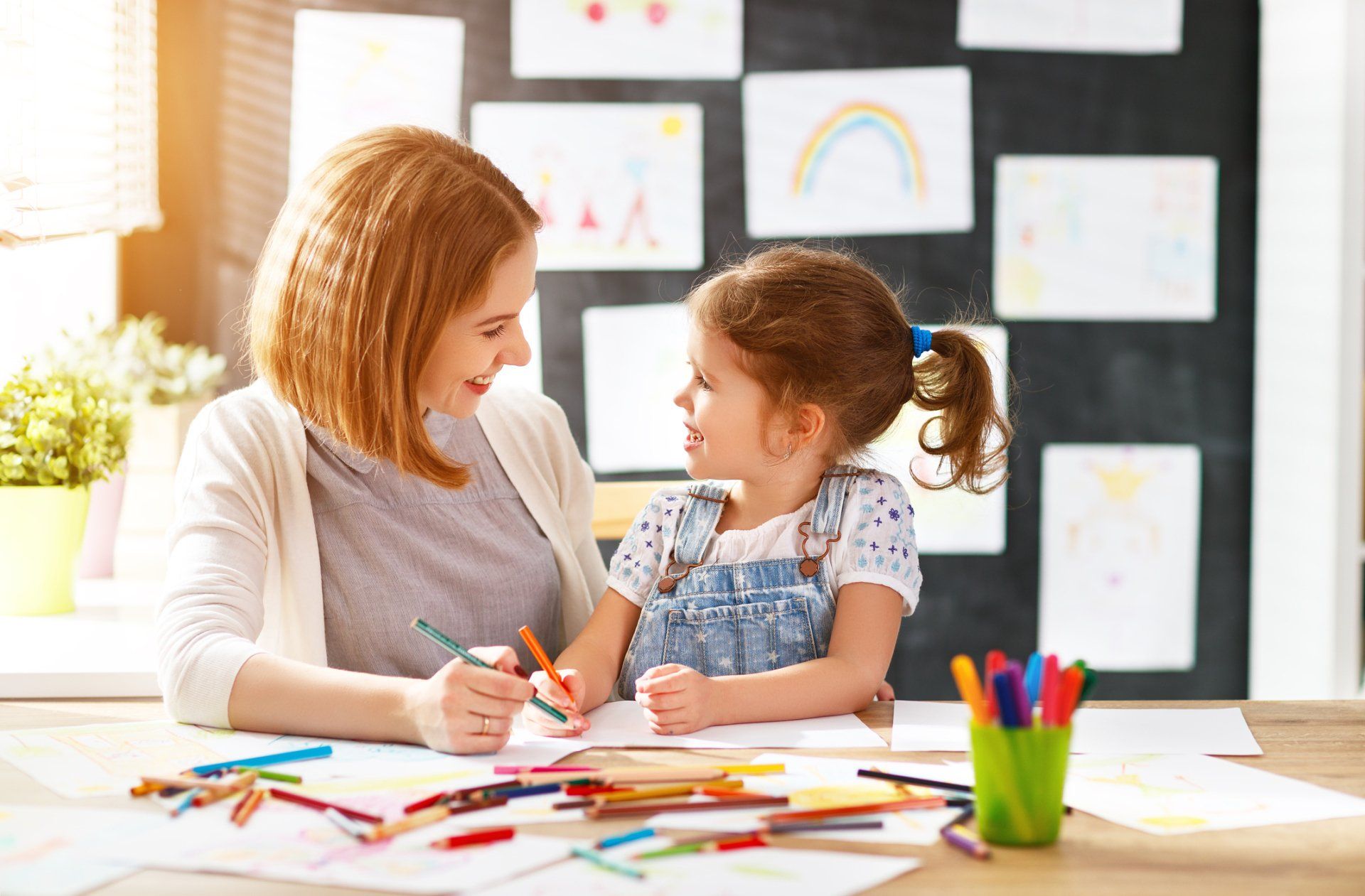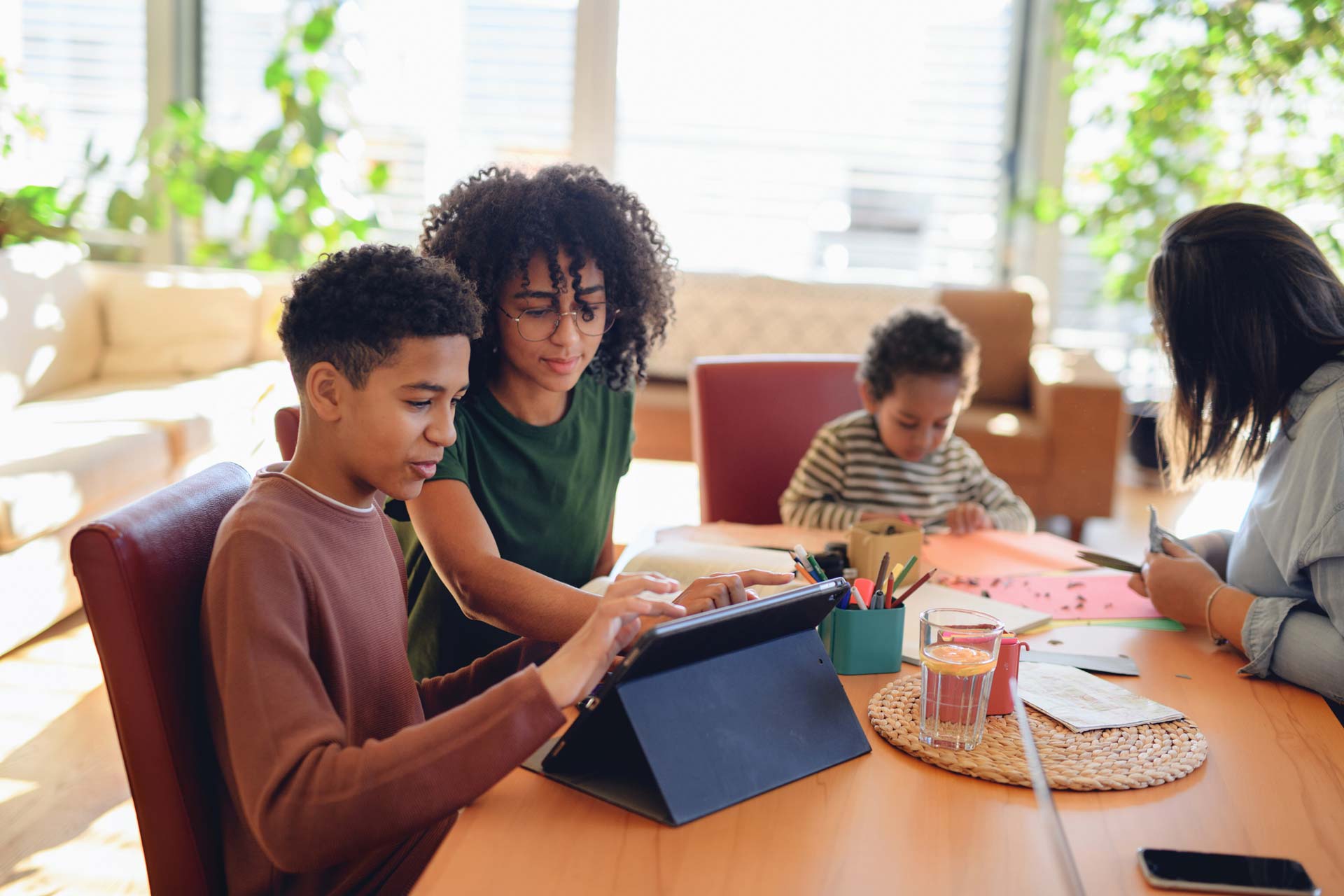How to Talk to Your Child About Their Artwork
- By Admin
- •
- 06 Aug, 2019
- •

Your preschooler just brought home a museum-worthy finger painting. But when asked, they won't open up about their imaginative artwork. How can you get your child to talk about their creative process? If you want to encourage your child's art, take a look at the open-ended questions that will get your child talking about their mini masterpiece.
What Materials and Tools Did You Use?
How did your child make their masterpiece? If your preschooler keeps mum about their Monet-like painting, kick off a conversation by asking what they used to create. Not only will this jumpstart the conversation, but it can also help your young child to learn new vocabulary words - expanding their language and literacy development.
If your child is still stuck, dig deeper and ask about:
If your child is still stuck, dig deeper and ask about:
- The paper. What type of paper did your child use to create their artwork? If they don't know paper terms (such as construction, card stock, cardboard, or tissue), give them the vocabulary they need. They can also answer with texture words such as smooth or bumpy.
- The paint. What kind of paint did your child use? If their artwork includes this medium, ask if they used temperas, finger paints, watercolors, or another type of paint.
- The drawing tools. What did your child use to draw with? Ask your child if they used crayons, pencils, markers, pastels, or another type of drawing tool.
- The other materials. Did your child use scissors? Glue? Glitter? Point to each part of the artwork as you ask.
How Did You Make You Artwork?
While it's tempting to ask about the creative process or simply say, "How did you create this?", your very young child may not understand what "create" means. Start with the word "make" and add in "create" (as a new vocabulary word) as the conversation gets deeper.
Like with materials/tools, your child may not know where to start as they attempt to answer this question. Process prompts to help them talk about their art include:
Like with materials/tools, your child may not know where to start as they attempt to answer this question. Process prompts to help them talk about their art include:
- Did you paint? You can spot a finger painting or watercolor artwork by sight. But that doesn't mean you should skip this question. After your child answers yes, go deeper and ask how they paintedwith their fingers, a brush, or another tool.
- Did you draw? Again, you know how your child made their artwork. Now you need them to talk about how they created. Along with the drawing tools, ask about how they made lines, squiggles, and shapes.
- Did you collage? A paper (or other material) and glue collage requires tear, cutting, layering, arranging, and attaching. Ask your child about the choices they made in creating their collage.
- Did you sculpt? Talk to your child about their 3D sculpture, the materials used, and how they molded their model.
Why Did You Choose to Make This?
Help your child to think critically by asking them to explain why they chose the subject matter or why they chose to portray it in a specific way. If your child isn't sure how to answer this general question, narrow the inquiry down and ask:
Are you looking for a new preschool program for your creative child? Contact Riviera Daycare & Preschool for more information.
- What's happening in this artwork? This question gives your child the chance to explain their artwork to you.
- Who chose the subject/topic? It's possible their teacher told them what to draw, paint, or create.
- What would you name this artwork? Encourage your child to explain their art by naming or titling what it is.
Are you looking for a new preschool program for your creative child? Contact Riviera Daycare & Preschool for more information.
Starting preschool can be a daunting experience for children Read this blog to learn how to help your child overcome separation anxiety.
Here are some key questions to ask during a parent-teacher conference and what you can expect from a conversation with your child's teacher.
A solid foundation in emotional development can set the stage for a lifetime of healthy relationships and successful interactions. Read on to learn how.
Know the benefits of outdoor play for young children? Take a look at what parents need to know about outdoor play, play spaces, learning, and development.
As your child enters preschool, they begin to embrace independence. However, you may start to notice certain behavioral problems. Read on for more info.
Enrolling your child in daycare is one way to give them the best start in life. Read on to discover some of the benefits of sending your child to daycare.
Preschool can be an exciting but overwhelming experience for parents and children. If your child is about to join preschool, have the following items.
Three may seem fairly young to start sending your child to preschool, but the benefits of two full years of education are manifold. Here are four.







